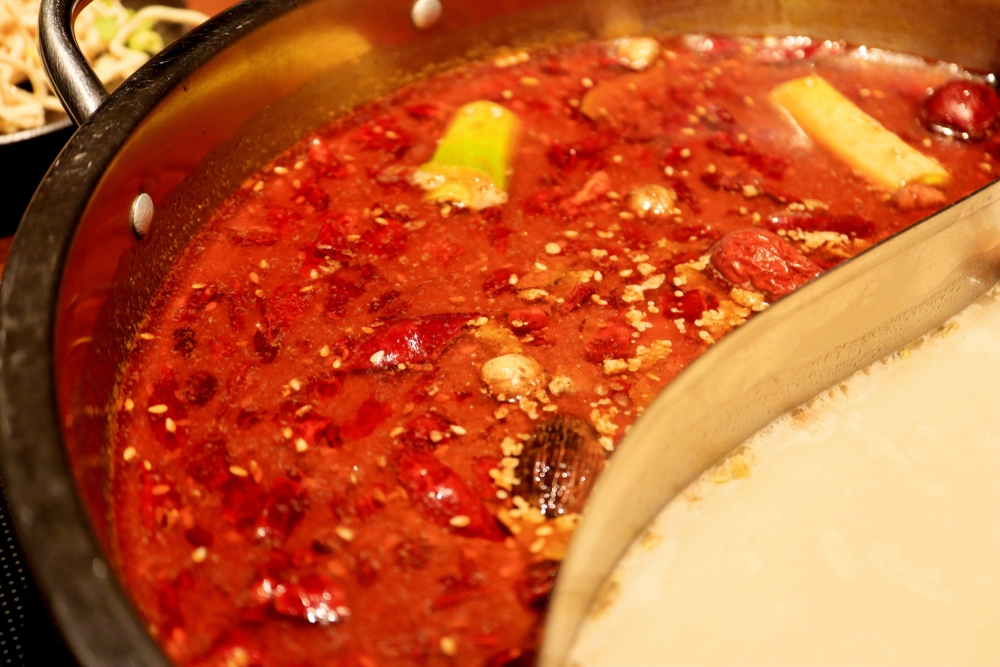When pregnant, for the sake of the baby in the belly, this dare not eat that dare not touch, just waiting for the baby to be able to do whatever it wants after birth.
Who knows, there are still a lot of troubles and taboos after giving birth to babies and becoming nursing mothers.
Want to have a nice hair? -No! Hair dye is poisonous!
Want to eat hot pot spicy hot pot? -No! Children will get angry when drinking milk!
Have a cold and want some medicine? -No! The medicine will be passed to the child with the milk!
…….

Are these [kind exhortations] and rumors on the Internet really reasonable?
Today, let’s take a good inventory and give a [reassurance] to the scared mothers.
1. Can’t perm and dye your hair during lactation?
Yes.
Phenylenediamine, ethanolamine and other substances in hair products may indeed be detrimental to children, but the possibility of affecting children is extremely low because these substances are absorbed through scalp and enter milk.
At present, there is no data showing any adverse consequences of hair dyeing during lactation.
Give yourself a beautiful hair during the period of taking baby, and think about whether you will feel beautiful.
However, it is still very necessary to choose regular and qualified products, not to try new hair dye, and to do a good job in allergy protection.
2. Can I make up during lactation?
Yes.
Even dyeing and perming can be done. What is makeup?
Of course, I still want to remind all mothers not to rub their faces against their children’s faces and not to let Eva lick your face after makeup.
Can I exercise during lactation?
Yes.
Rumor has it that breast-feeding mothers’ milk will [turn into yogurt] after exercise. Although the old editors of this brain circuit cannot understand it, research shows that aerobic exercise will not increase lactic acid in breast milk.
Although anaerobic exercise will increase the concentration of lactic acid in breast milk, it will last for a short time and have no effect on the quality of breast milk.
If Eva doesn’t like the taste very much after eating milk, she will rest for 1-2 hours after exercise and then nurse. It will be no problem.

4. Can I be vaccinated during lactation?
Yes, influenza vaccine is strongly recommended.
According to [uptodate] data, except smallpox and yellow fever vaccines, inactivated vaccines and reduced live vaccines for lactating women do not affect the safety of breast feeding for women and their infants.
Influenza vaccines can also be vaccinated, of course, and are highly recommended.
Breastfeeding mothers, as people who have frequent contact with their children, vaccination is equivalent to reducing the risk of infection of their children. Not only protect themselves but also protect their children, killing two birds with one stone!
Can I have X-rays during lactation?
Yes.
Many mothers are often required to have an X-ray examination after giving birth or going to the dentist. At this time, they are worried about [whether X-ray radiation will affect nursing].
This kind of worry is also unnecessary. The radiation from X-ray examination is only a matter of a moment. There will be no residue in the mother’s body, nor will it affect the child. There is no need to worry about magnetic resonance and B-ultrasound.
6. Can I eat chili during lactation?
Eat if you want.
Pepper, scallion, ginger and other foods with pungent taste may change the smell of breast milk, but will not harm children.
Trying different tastes may also make it easier for children to accept different foods when adding complementary foods.
Whether it is chili, spicy strips (the source and processing meet hygiene standards), hot pot or malatang, it can be eaten as long as the child is not particularly sensitive.
Not allowed to eat spicy food at all, what can the mother of Chengdu, Chongqing, Hunan do…

Can I drink coffee during lactation?
Just a moderate amount.
Caffeine can be taken in an appropriate amount during lactation, but it should not exceed 300 mg. Coffee in ordinary standard cups (about 235 mL) contains about 100 ~ 150 mg of caffeine. It is good for nursing mothers to drink no more than 2 cups a day.
In addition to coffee, tea, chocolate, cola and other foods also contain caffeine, but eating in moderation is no problem.
If there is no concept of 300 mg, we have listed the caffeine content in common beverages and just look at it.

Newborns and premature infants are more sensitive to caffeine, so try to endure it during the month. At other times, it is OK to buy a cup of milk tea and coffee and have a mouth addiction. After drinking, it is good for the child to have no obvious adverse reactions.
8. Can I drink during lactation?
No! Don’t touch a drop.
Alcohol can enter milk through the blood-milk barrier without any obstacle, which may affect the child’s nervous system, lead to excitement, sleep disorders and other conditions, and in serious cases, it may also harm other organ systems.
The latest research evidence shows that even one drop of alcohol can cause damage, that is to say, the safe drinking dose is 0.
If you must drink, do not exceed one bottle (350 mL) of beer and one small glass (40 g) of red wine. It is recommended to breastfeed before drinking, and the interval between drinking and breastfeeding should be at least 2 hours.
Other things to pay attention to are: rice wine, fermented glutinous rice (fermented glutinous rice) and wine heart chocolate.

9. Can I smoke during lactation?
No matter from any angle, one should not smoke.
Toxic substances in cigarettes will directly enter breast milk and cause dangerous side effects.
Second-hand smoke and third-hand smoke are also issues that need the attention of mothers and babies.
Third-hand smoke refers to the tobacco residue left on clothes, walls, carpets, furniture, even hair and skin after smokers [smoke]. It is a passive smoking method.
Can I eat raw and cold food?
Yes.
Milk is constant and does not change because of the temperature of the food. Just like drinking hot water does not make breast milk hot, eating ice cream does not make milk cool. As long as the source and processing meet hygiene standards, mothers can eat it with confidence.
Raw meat such as salmon can also be eaten to ensure that the source is hygienic and clean.
11. Can I nurse after mastitis?
Yes.
Mild mastitis and breast pain can be relieved only by suckling or emptying milk with a breast pump and alternating hot compress and cold compress.
Mild mastitis should not stop feeding, otherwise it will aggravate mastitis. Moreover, breast milk itself has not been infected, so breast-feeding during mastitis will not harm the child.
Severe mastitis may require painkillers (ibuprofen) and antibiotics. Tell the doctor that you are nursing and the doctor will prescribe drugs that can be taken during lactation.
12. Can you breast-feed your menstruation?
Yes.
Hormonal changes in the body during menstruation may cause mothers to concentrate milk, reduce milk volume and change milk taste, which does not affect the nutritional value of breast milk, and is even less likely to be toxic (angry is not toxic).
During menstruation, it is enough to pay attention to nutrition (increase the intake of iron-containing food and high-quality protein), rest and liquid intake.
13. Can I continue to nurse my second child?
Yes, commonly known as [relay milk].
Pregnancy during lactation does not affect feeding, but due to hormones and other effects, there may be a decrease in lactation volume and changes in milk taste.
For children who are young or have just added supplementary foods, if breast milk is not enough, they can add some formula milk to supplement it according to the baby’s defecation, urination and growth.
If the child is over 1 year old, breast milk is insufficient at this time, and other dairy products can be used to supplement it.
14. Can I nurse if I have a cold?
Yes.
Cold itself will not affect the quality and quantity of milk, and antibodies in the mother’s body will also be transmitted to the baby through milk, so there is no need to suspend lactation.
Colds are not transmitted through milk, but mothers are advised to wear masks when breast-feeding and wash their hands before touching their babies.

15. Can I nurse if I have a fever and take medicine?
Look, I took what medicine.
Ibuprofen or acetaminophen (Tylenol) are safe antipyretic drugs during lactation. These two single-component drugs can not only reduce fever, but also be used for various pains during lactation, such as headache, muscle pain, toothache, etc.
However, to avoid using some cold compound drugs containing pseudoephedrine, there may be a risk of reducing milk volume.
